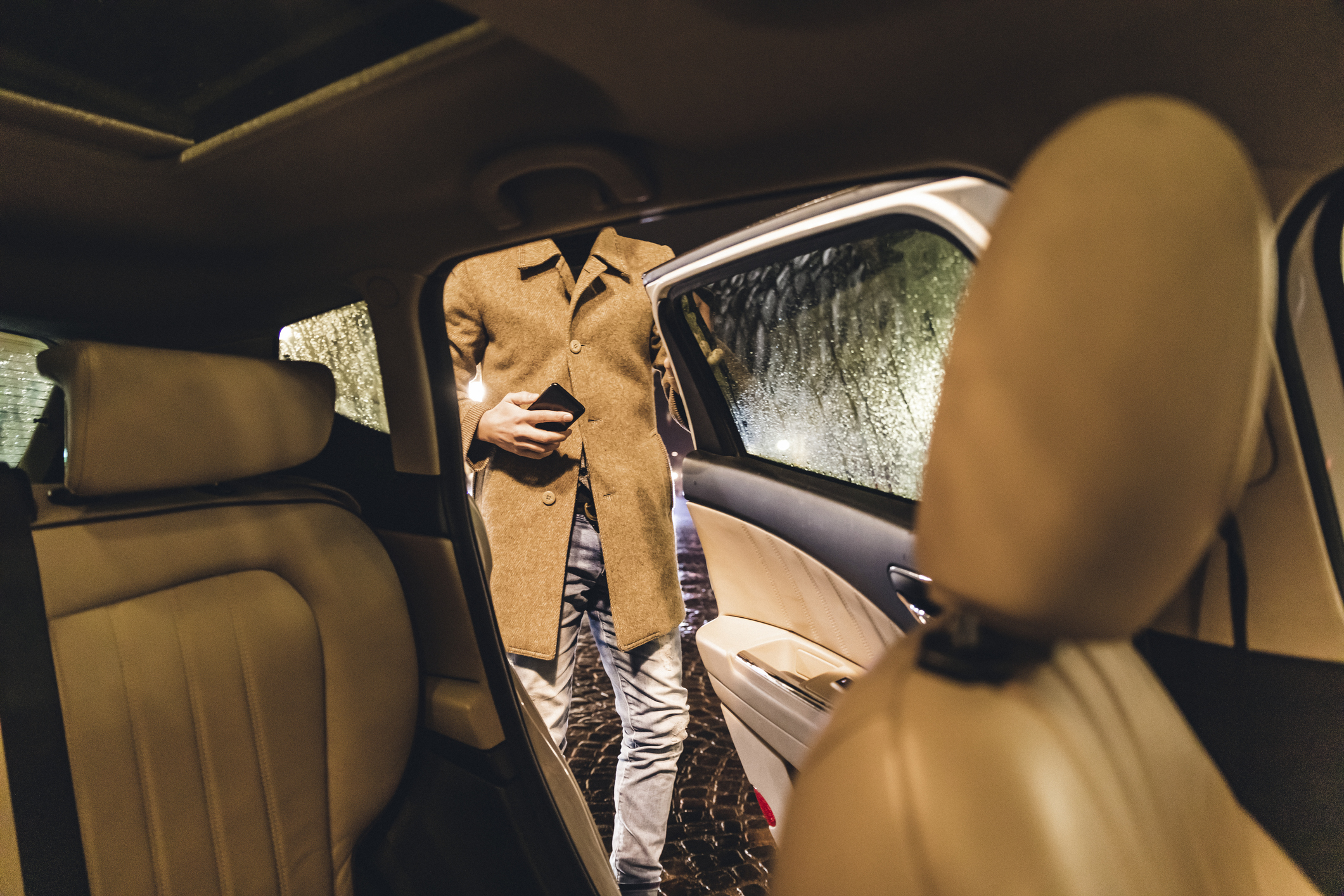Gonzalez v. United Fin. Cas. Co. (Arizona)
The Arizona courts have held that auto policies that cover a driver or passenger when they enter a vehicle may be limited to the literal meaning of the act of entering a vehicle, excluding activities that may precede entering a vehicle, like addressing other prospective passengers in the same group of friends who are waiting to enter.

(November 2021) - The Arizona courts have held that auto policies that cover a driver or passenger when they enter a vehicle may be limited to the literal meaning of the act of entering a vehicle, excluding activities that may precede entering a vehicle, like addressing other prospective passengers in the same group of friends who are waiting to enter.
In Arizona, if a passenger contacts a rideshare company like Lyft or Uber, when the operator arrives, they should enter the vehicle immediately and carefully. If the passengers’ friends sharing the ride are not paying attention and are wandering around, which often happens at the end of a night of imbibing, the passenger should not exit the vehicle to round them up. The Arizona Court of Appeals recently made this clear in Gonzalez v. United Fin. Cas. Co., Docket No. 1 CA-CV 20-0363, 2021 Ariz. App. Unpub. LEXIS 202, at *1-3 (Ct. App. Feb. 23, 2021). If the passenger hesitates and doubles back for their friends, the rideshare company’s uninsured/underinsured motorist (UM/UIM) coverage may not provide coverage in the event they are struck by another vehicle.
In Gonzalez, the plaintiff and several of her friends celebrated their college graduation from Northern Arizona University in Flagstaff, Arizona. Later that night, one of her friends ordered an Uber rideshare. While waiting for the ride, the group separated when two of them stopped to speak with an acquaintance. The other three, including Gonzalez, were on the north side of the street when the Uber driver arrived and parked on the south side.
Gonzalez walked across the street and approached the Uber car, driven by LaVerne McCabe. They greeted one another, and Gonzalez looked back as though she expected someone would be following her. Gonzalez opened the back door but then quickly closed it. She told McCabe to “wait right here for me,” while holding up her hand and moving it toward McCabe. McCabe replied, “I’ll be right here waiting for you,” pointing to her driver’s seat. While this exchange was occurring, Gonzalez was walking backwards into the street, apparently searching for her friends. As she approached the dividing line between the two traffic lanes, a pickup truck crashed into Gonzalez, causing her to suffer serious injuries.
The auto insurer of the truck paid Gonzalez the $50,000 liability coverage limits. Gonzalez then filed a declaratory action against Progressive Insurance d/b/a United Financial Casualty Company (UFCC), the Uber driver’s auto insurer, alleging she was entitled to underinsured motorist coverage under the policy, which provided such coverage for “[a]ny person while occupying an insured auto while that insured auto is engaged in a prearranged service.” The policy defined “occupying” as “in, entering, or exiting.” Id. at ¶ 4. After considering competing motions for summary judgment and oral argument on whether Gonzalez occupied the Uber vehicle, the superior court ruled in favor of UFCC. Gonzalez timely appealed.
The Arizona Court of Appeals began its coverage analysis “with the language of the policy at issue,” and attempting to assign terms “their plain and ordinary meaning, examining the policy from the viewpoint of an individual untrained in law or business.” Id. at ¶ 7. The court then determined the plain and ordinary meaning of the term “entering,” which was not defined in the policy, by reviewing dictionary definitions and decided that the term simply meant “to come or go into.”
In this context, the Arizona Court of Appeals addressed Gonzalez’s argument that “entering” a vehicle includes when someone is “in proximity to the insured vehicle and engaging in conduct centering on it” – that “the act of gathering her friends was necessary to the entering process.” The court pointed out that Gonzalez still needed to cross the street, find her friends, ask them to come with her, and cross the street again. According to the court, “to define these collective actions as ‘entering’ the car would extend coverage beyond the policy’s plain and ordinary meaning.” Id. at ¶ 7. Accordingly, the court affirmed the decision of the superior court.
The court’s focus on the meaning of the specific language of the policy in the Gonzalez case is typical of how Arizona courts deal with these kind of coverage issues. If the language is “plain and ordinary,” Arizona courts follow a common sense approach and do not infer a different or more expansive meaning. Meanwhile, the insurer may always attempt to counter a plaintiff’s suggested definition and forgo an appellate court’s interpretation by explicitly defining terms like “entering a vehicle” in the policy.
